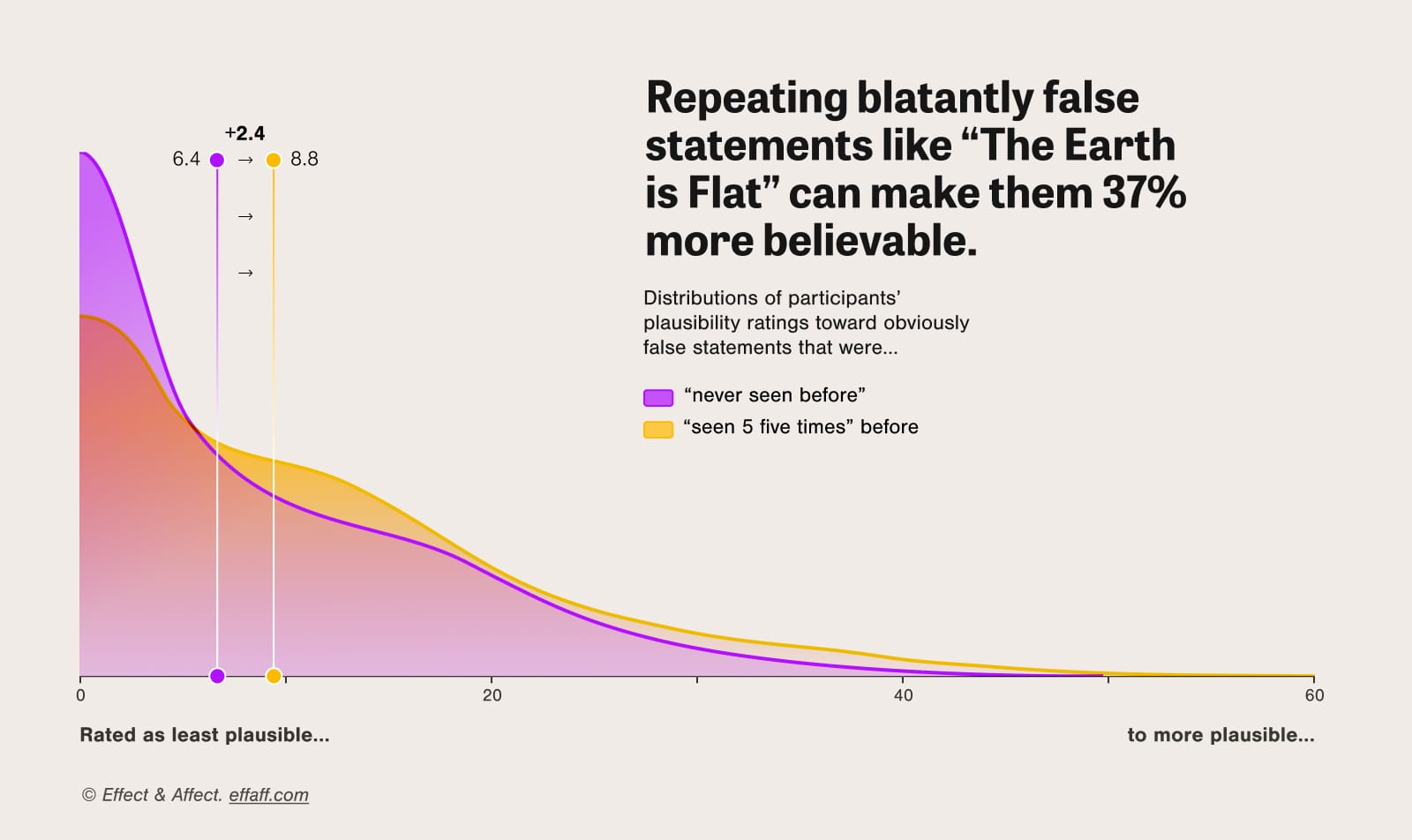Repeat after me.
Did you know the earth is flat? No, you don't think so? What happens if you read "the earth is flat" four more times?

Did you know that the Earth is a perfect square?
You should know that this isn’t true. But if I repeat this four more times, you may start to believe it.
In the past, researchers found that by repeating claims where the truth was a bit fuzzy, such as "Fortune cookies are Chinese," they could convince an audience that fortune cookies are indeed Chinese. (Hint: they’re not, they’re from Japan).
This is known as the “Truth-by-Repetition” or “Illusory Truth” effect. For a long time, we thought this trick only worked with statements that seemed at least a little plausible. It was thought that a lack of knowledge or the ambiguity of the statement explained the effect.
In 2021, Doris Lacassagne and her colleagues decided to test the Truth-by-Repetition effect. They set up an experiment with the wildest, most blatantly false statements like “Earth is a perfect square” and “Elephants run faster than Cheetahs”.
First, they asked participants to rate their interest in a list of false statements. Some of those sentences were presented five times. Then, in the second stage of the experiment, they asked participants to evaluate the truthiness of a broader set of statements. Those happened to include the repeated statements from the previous stage. And guess what? Repetition worked its sneaky magic, making even the craziest claims seem ever so slightly more plausible.
While the notion of square earth did not take root in every participant's mind, the act of repetition heightened its perceived credibility in at least half of them. Overall, repeating a false statement made it more believable by 38%.

More research suggests that this illusory effect also impacts how often misinformation is shared. The more the information is repeated, the more likely it is to be shared.
Why does this matter?
In the realm of visual communication, the one-time comprehensive report, full of data visualizations, remains prevalent. Considering that repeated exposure increases both believability and sharing behavior, relying solely on a one-time publication may not be enough to counter misinformation that circulates persistently. A prudent shift to a three Rs—Reduce, Reuse, Recycle— strategy might prove advantageous:
- First, deconstruct the information into more digestible elements, such as individual visualizations or standalone insights.
- Then gradually disseminate through various channels, especially on social media, to amplify their impact.
- Rinse, wash and… repeat?